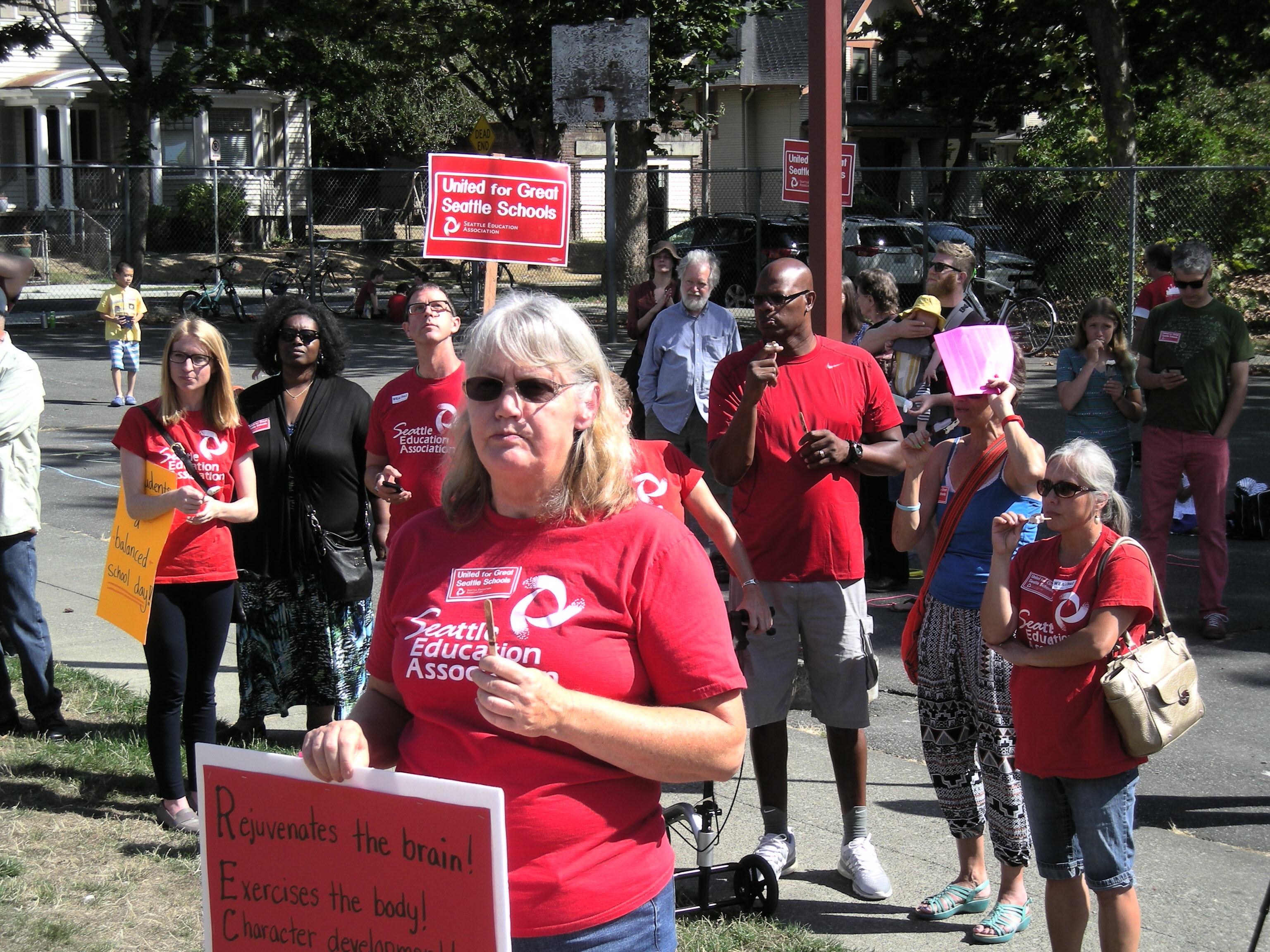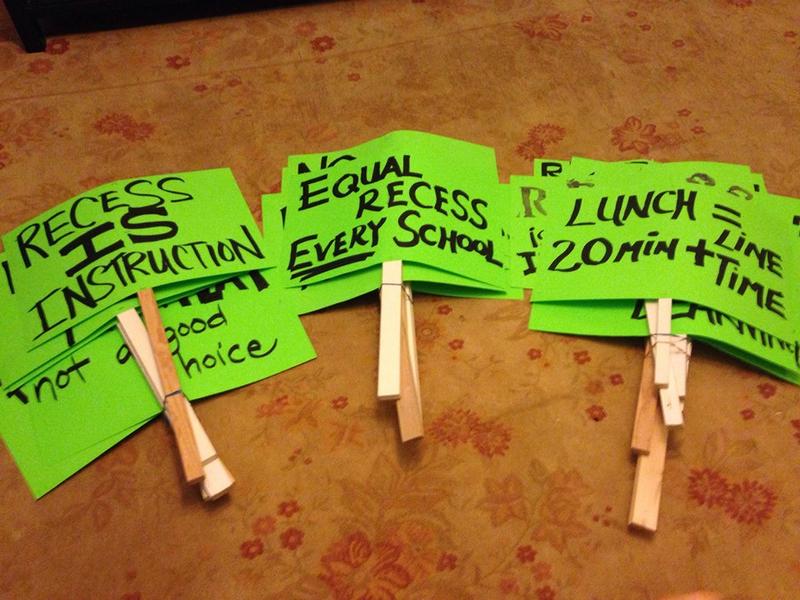
Anyone who has shared a car on a long trip or sat through an airplane flight knows that confining small children for an extended period of time is a recipe for disaster. That is why Seattle teachers say recess time is a key issue in their contract negotiations going on now, less than two weeks before the scheduled start of the school year.
Seeking to draw attention to their request for a guaranteed 45 minutes of recess for students, the Seattle teachers’ union, the Seattle Education Association (SEA), called a rally Thursday on the playground of Leschi Elementary School. More than 100 people gathered to hear speakers, some with signs and placards advocating "equal recess" and balanced school days, though most ― possibly because at 11 a.m. on a weekday morning many parents were at work — were union members.
The SEA is currently in contract negotiations with the district, Seattle Public Schools (SPS). Along with negotiating over typical issues such as pay raises, this year the union is calling to limit the number of standardized tests the district administers to students and proposing a minimum of 45 minutes of guaranteed recess for elementary students. Currently some students receive much less recess time, and recess time varies school to school.
Several teachers who spoke about the issues Thursday said they are also parents of students in the district and see the problem from both sides of the classroom.
"Kids have energy, and that energy is a good thing. And that we try to squelch it in the name of test scores is abhorrent,” said Shana Brown, a teacher at Broadview Thomson, a K–8 school in northwest Seattle, and the mother of a 10-year-old student. Then she quoted her 10-year-old: 'Well, gosh, if we don’t have enough recess, we’re just going to end up making our own recess in the hallway, on the way to the bathroom, or talking in class.'"
Jonathan Knapp, SEA president, cited three reasons that recess has become a big issue in negotiations this year. He noted a growing body of evidence showing that unstructured playtime is important for educational attainment and healthy child development. “So recess is a health and development issue,” he said. “It’s important to note that recess is learning time, so at least the state recognizes that.”

“[An] increase in testing has led to a decrease in recess. So recess is a testing issue,” he added. “And finally, access to recess in the district is an equity issue. Many more of our schools with the least amount of recess are in the high-poverty areas of the city.” Recess time varies from school to school, he said, with some having 45 minutes per day or more and others, more often than not in the south end, as little as 10 or 15 minutes for free play. A KUOW investigation in 2014 found that recess time has declined at Seattle schools in recent years, and that schools with the shortest recess times were those with higher numbers of low-income students and students of color. In 2014, KUOW found, 11 Seattle schools had 20 minutes or less of recess a day.
The district has proposed a 30-minute-longer school day for certified staff, according to the SEA bargaining team. The school district is not giving interviews about issues that are part of ongoing contract negotiations. Teachers have set Sept. 3 as a strike deadline.
One speaker at Thursday’s rally, Tara Coffin, comes at the issue from three directions: as a former kindergarten teacher, as a parent, and as a Ph.D. candidate studying how children’s experiences help shape their growing brains.
“Time that’s spent out at recess correlates to increased attention, on-task behavior and retention in the classroom later,” she said to the attendees. “That’s because recess provides kids with brain breaks. Whether you’re a kid or an adult, you need a chance to take a brain break because recall improves when learning is spaced out, rather than being presented all at once.” She also pointed out that attention is cyclical — it’s just natural for our minds to wander after a while.
“Recess gives kids a chance to socialize in a safe setting, to practice social skills with other children,” she said. “It empowers choice-makers and problem-solvers and prevents issues such as learned helplessness later on by giving kids a chance to make choices for themselves.”
Melissa Jonas was a neighborhood parent who attended the rally. She said her student would be starting kindergarten in the fall and she was shocked to realize recess time was an issue.
“There’s been a group of parents working on this for months and months, and it’s scooted past my radar,” Jonas said. “Of course all schools [should] have recess.” For Jonas, it is a matter of equity, and the school board being willing to take a position on the matter, she said.
“There’s so many other things for parents on the south side to be concerned about,” she said. “Recess shouldn’t be on our radar. It’s pissing me off that recess is on my radar, quite frankly.”











